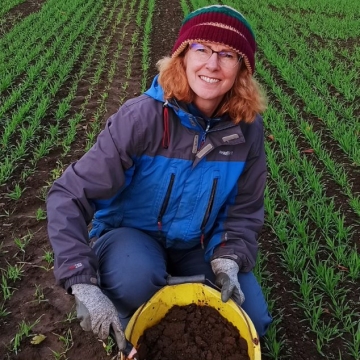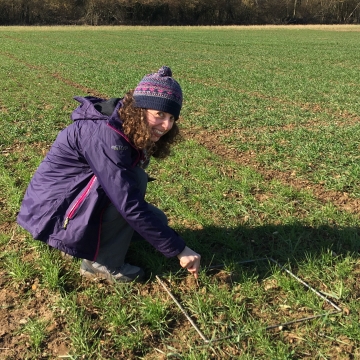Key research questions
- How do you generate crops that are adapted to reduced input conditions?
- How can we expand the crop basket of an increasingly homogeneous agricultural system with underutilised crops?
- How do you improve crop rotations with the optimisation of companion cropping, plant teams and subsidiary crops?
The importance of crop diversity and agronomy
Since its foundation, the ORC has consistently worked on crop science and has been a driving force in diversification in cropping systems and plant breeding. Cropping system research encompasses the way agricultural production is organised, including rotation and the management of crops and soils. Cropping system design is the basis of how agriculture provides ecosystem services, including the production of food and the regulation of climate, nutrient, water and carbon cycles, diseases and biodiversity. Organic cropping systems are a catalyser of agroecological innovation, and have a pivotal role in redesigning the whole of agriculture towards greater sustainability and resilience.
Plant breeding is the process by which human beings have made plants useful for agricultural production. It is one of the major challenges for organic farming as many current crop cultivars and varieties have been bred for conventional, highly standardised (monoculture) systems that rely on external inputs. Organic farming, instead, is characterised by conditions of low external inputs and high heterogeneity and unpredictability of agro-climatic conditions. This calls for a diversity-based and inclusive approach, and for deep integration of plant breeding and cropping system design.
Our general hypothesis is that crop performance is the result of the interplay between crop genetics, environmental conditions and crop management. To optimise this interplay, the key action is to diversify: broadening and optimising varietal choice, diversifying plant breeding strategies including use of genetically heterogeneous crops, expanding the range of available crop species, providing varied strategies for crop protection and weed control; optimising the use of subsidiary crops in rotations.
Our research in this area aims to strengthen work on cropping system diversification by expanding the scope of on-farm data collection and analysis, driving improved decision-making in the light of complexity and supporting agroecological transition in this process.





